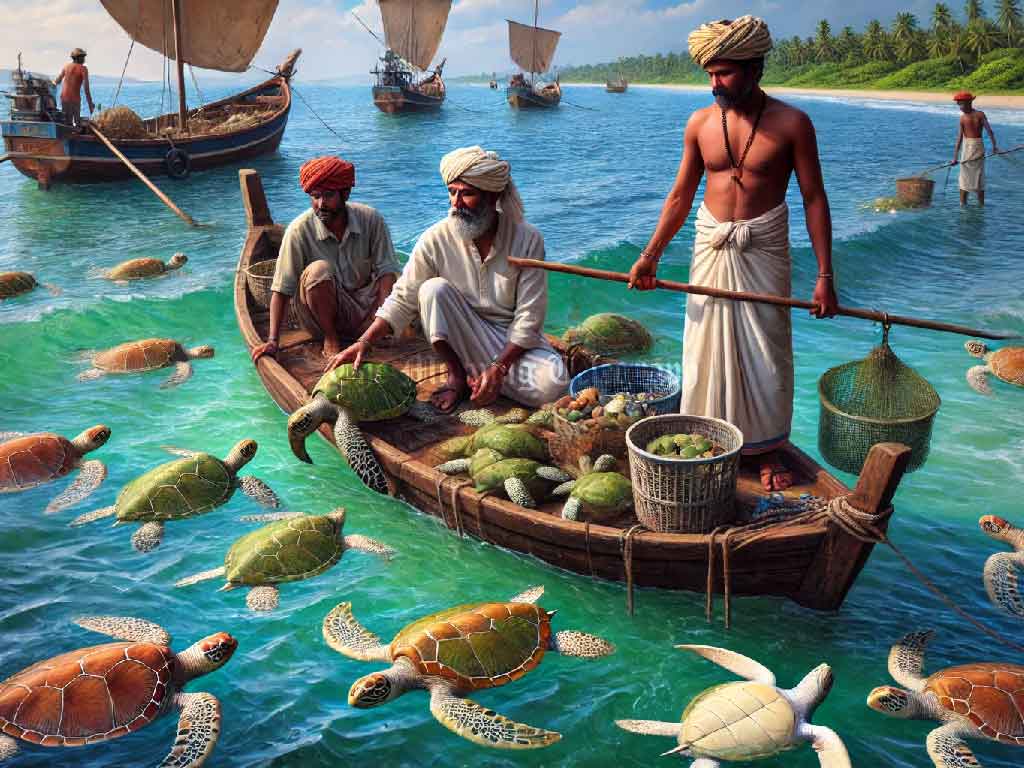
The persistent issue of illegal fishing by Indian trawlers in Sri Lanka’s northern waters has escalated, leading to significant environmental damage and economic hardship for local communities. Fishermen from Tamil Nadu have been crossing the International Maritime Boundary Line (IMBL) into Sri Lankan territory, employing destructive bottom trawling methods that devastate marine ecosystems.
Local fishermen in Jaffna report that over 100 dead turtles have been found in the Kashurina, Kovalam, and Karainagar seas within the past month. Additionally, many injured turtles have been abandoned in the waters. Despite these grim findings, naval personnel and local fishermen have managed to rescue and release numerous turtles back into the sea, providing a glimmer of hope amidst the crisis.
The environmental impact is profound. Bottom trawling indiscriminately destroys seabed habitats, leading to a decline in fish stocks and biodiversity. This practice not only threatens endangered species like sea turtles but also undermines the sustainability of the fishing industry in the region.
Economically, the intrusion of Indian trawlers has been disastrous for Sri Lankan fishermen. The depletion of fish stocks due to overfishing by foreign vessels has led to reduced catches for local fishermen, directly impacting their livelihoods. The Sri Lankan government estimates an annual loss of approximately $40 million due to these illegal activities.
Despite diplomatic efforts, including the 6th meeting of the India-Sri Lanka Joint Working Group (JWG) on Fisheries held in Colombo, the issue persists. Both sides have agreed to address the concerns in a humanitarian manner, acknowledging the livelihood issues faced by fishermen.
Local authorities and environmental groups are calling for stricter enforcement of maritime laws and increased patrolling of Sri Lankan waters to deter illegal fishing activities. There is also a push for diplomatic negotiations to find a sustainable solution that protects marine life and supports the livelihoods of fishermen on both sides of the maritime boundary.
The ongoing illegal fishing by Indian trawlers in Sri Lankan waters poses a severe threat to marine ecosystems and the economic well-being of local fishing communities. Addressing this issue requires coordinated efforts between India and Sri Lanka to enforce maritime boundaries and promote sustainable fishing practices.




